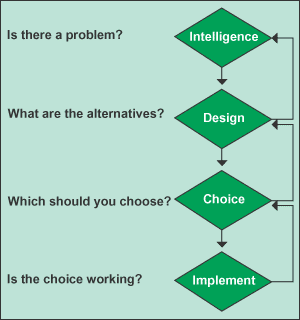How to choose
I've never been able to know how best to make a decision.
Do I go with my emotions and what I feel (intuition) is best (best for who?) or do I go with logic, make up a list of good and bad and then compare, or use probabilities (how do you accurately decide the weights?) and decide what has the greatest chance of succeeding or use some statistical methods to basically crunch numbers get a choice out.
 Using logic will sometimes get the most logical result but it won't always be something I'm happy with. For example how does one choose what uni to go to? Do you look at just the uni'a results average for a course, look at the outside area, the SU, the student campus facilities, the course content, the lecturers, what other students who have passed the course have gone on to do? There are a number of factors one must consider. In the end one uni may look the best on paper, but it's not until you start that you may realise you don't like it there, then all the little annoyances of the uni start shining through and you wish you went somewhere else.
Using logic will sometimes get the most logical result but it won't always be something I'm happy with. For example how does one choose what uni to go to? Do you look at just the uni'a results average for a course, look at the outside area, the SU, the student campus facilities, the course content, the lecturers, what other students who have passed the course have gone on to do? There are a number of factors one must consider. In the end one uni may look the best on paper, but it's not until you start that you may realise you don't like it there, then all the little annoyances of the uni start shining through and you wish you went somewhere else.I don't think using solely logic is the best way to make a decision, especially when humans are involved in the end solution.
People who succeed in life (socially and financially) tend to be people who find a carreer they enjoy. If you are happy in your job you will be happy to work longer and/or harder. After a certain point you can take the wealth of experience you've gained, find a niche market and setup a business and exploit it. You can only do that however, if you start the right way; with a job you enjoy!
Emotions are very important with people, it would be unwise to ignore the way we feel when we make a decision. So how does one make a decision? Well it could be usefuly to look at the audience you are trying to target.
 If you are a parent and looking after your child, you do what's best for that child. Sometimes that means making the child sad and allowing him/her to cry for a minute, sometimes it means depriving yourself of things you 'want' but by doing so it allows you to give the child things it 'needs'. Every good parent does what is best for the child, sometimes this inolves looking at the long term benefits. Teaching a child to be a good, respectful human and endowing the child with good morale values is something every good parent can do. They do not do this for personal gain but for the greater good. I believe most parents don't teach their child these values so that the chlid can look after the parent, but do it because the parent believes in what they teach, they have faith in doing what is right, being a good person and helping (most) people in need.
If you are a parent and looking after your child, you do what's best for that child. Sometimes that means making the child sad and allowing him/her to cry for a minute, sometimes it means depriving yourself of things you 'want' but by doing so it allows you to give the child things it 'needs'. Every good parent does what is best for the child, sometimes this inolves looking at the long term benefits. Teaching a child to be a good, respectful human and endowing the child with good morale values is something every good parent can do. They do not do this for personal gain but for the greater good. I believe most parents don't teach their child these values so that the chlid can look after the parent, but do it because the parent believes in what they teach, they have faith in doing what is right, being a good person and helping (most) people in need.In this case the child is the audience and the parent does what is in the best (long term?) interest of the child. This is not necessarily what is best for the parent and not necessarily what the parent would want (presents, gifts).
 When one makes a film, one must look at the target audience. Are you making a drama? An action film? A comedy, what type of jokes/humour will you use? Whatever film it is, the film will be customized and built around the target audience. There is usually no point in using action film techniques (CG 3d special effects, pyrotechnics (explosions, etc.), fast paced action edits if you are making solely a comedy type film, unless you are making an action/comedy.
When one makes a film, one must look at the target audience. Are you making a drama? An action film? A comedy, what type of jokes/humour will you use? Whatever film it is, the film will be customized and built around the target audience. There is usually no point in using action film techniques (CG 3d special effects, pyrotechnics (explosions, etc.), fast paced action edits if you are making solely a comedy type film, unless you are making an action/comedy.From what I know some of the most successful directors make films they would enjoy to see. I've heard the same principle applied to games development. That being the case, the success or failure of a game (at least from a small company) is down to the person/people that is the creative genius pushing their ideas forward and going with their 'gut instinct'. Ultimately making something that they would like to play.
When at work there are different types of people. There are those that are straight forward, decent, honest people who can sometimes be odd but who are the same no matter what the circumstances. Then there are those that change what they say depending on who they are around, this is usually so that the other party can understand what they are saying better, in effect putting their ideas in terms the other party will understand. Then there are people who say one thing to your face and act totally differently when you're not around, should you make friends with one of those people you wouldn't know which face is truly theirs. They seem unable or at least unwilling to just be themseleves. They can be so caught up in the need to satify others and fit-in that they may well have forgotten who they truly are.
A game designer can not use solely logic to make a decision. They must use their true emotions, beliefs, creativity and experience in the field. This being the case, surely they aren't able to be two faced people, as they must be true to themselves to be able to express their inner most emotions towards the game. If they were the only creative 'push' behind the game, making the big design decisions, then that game would have a lot of that person in it, just like a music artists' music has a lot of them in it.
So how does a games designer make a decision? The answer depends on the designer, and only experience can say how much of their personality they should put in it. After all how do most people buy presents for someone, they take the point of view, if I like it, then they should too!
If I like the game, and I enjoy playing it, then others should also.
Of course the end result (sales) says how much other people like that games designers' personality and surveys narrow it down, to say what they like or don't like. This is then the experience that tells the designer how much of their personality they should pour into a game.


0 Comments:
Post a Comment
<< Home